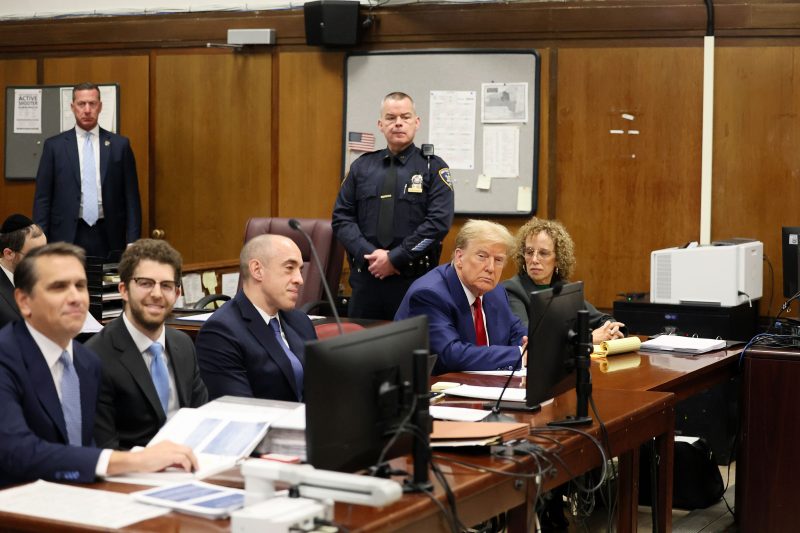Donald Trump’s tumultuous presidency has been a topic of debate and controversy since he first entered the political arena. Now, with the possibility of facing criminal charges looming over him, questions have arisen about whether he could still serve as the GOP nominee and potentially as President even if convicted of a crime.
Trump’s rise to become the likely GOP nominee once again reflects the deep divide within the party. Despite his polarizing nature and the numerous legal challenges he faces, Trump maintains a strong base of support among Republican voters. This unwavering support has solidified his position as a front-runner for the nomination, even as legal troubles mount.
One of the key issues at play is whether a convicted criminal can serve as President. The U.S. Constitution does not explicitly disqualify a convicted individual from holding office, leaving room for interpretation. Past legal precedents suggest that impeachment is the primary mechanism for removing a President guilty of high crimes and misdemeanors, rather than criminal conviction alone.
However, the implications of a sitting President facing criminal charges are far-reaching. Questions about executive authority, legitimacy, and the rule of law come to the forefront. The spectacle of a President defending himself in court while carrying out the duties of the highest office in the land would undoubtedly test the limits of the U.S. political system.
Furthermore, the prospect of a convicted President raises ethical and moral concerns. How would the American people view a leader found guilty of a crime? Would the office of the President be tarnished by such a stain on its reputation? These are complex questions that go beyond legal technicalities and delve into the realm of public perception and political integrity.
Ultimately, the decision on whether Trump could serve as the GOP nominee or President if convicted of a crime lies with the American people. The upcoming elections will be a crucial test of the electorate’s values and priorities. It will be a referendum not only on Trump’s personal conduct but also on the state of American democracy and the resilience of its institutions.
As the political drama unfolds, one thing is certain: the fate of Donald Trump and the Republican Party is intertwined with the fate of the nation itself. The events that transpire in the coming months will shape the course of American history and define the legacy of one of the most controversial figures in modern politics.
In conclusion, the specter of a convicted criminal serving as President raises profound questions about the nature of democracy, justice, and leadership in the United States. The case of Donald Trump serves as a powerful reminder of the complexities and challenges inherent in the American political system. Only time will tell how this chapter in the nation’s history will end.

